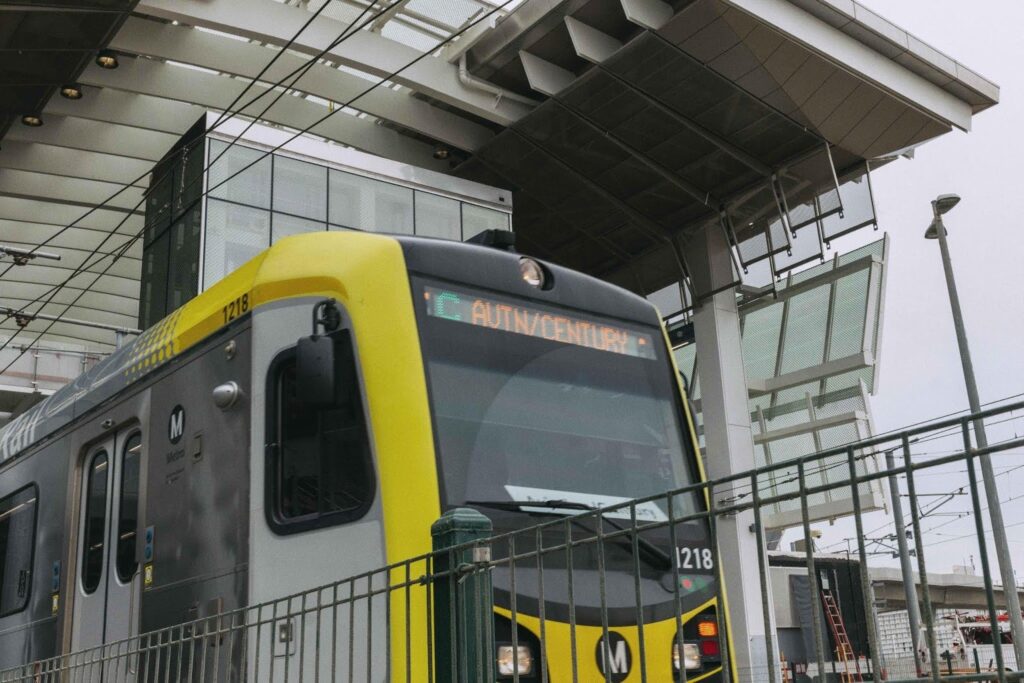
American Conservative magazine “rails against the machine,” promotes alternatives to the automobile
 |
| Sound Transit Link Light Rail at Columbia City Station Originally uploaded by Thomas Le Ngo |
It seems like everything in Washington these days is politically charged — economic recovery, health care and Wall Street reform, to name a few. Unfortunately and often without good reason, transportation becomes one of them.
William Lind, a respected figure in right-wing circles, is adamant that public transportation shouldn’t be, explaining why in “Rail Against the Machine,” featured in this month’s American Conservative magazine — part of a special package in American Conservative on public transportation with contributions from a host of special authors.
Lind is the co-author with the late Paul Weyrich of a recent book called “Moving Minds: Conservatives and Public Transportation” and was featured in a Transportation for America online debate late last year. His argument is simple: there is nothing inherently conservative about favoring highways — and nothing un-conservative about alternatives to the automobile.
For starters, Lind points out, conservatives ride public transportation in large numbers. Among residents in Lake County, Illinois, a Republican enclave in suburban Chicago, 11 percent of those earning more than $75,000 per year use the METRA commuter train. They are using public transportation because they like and it meets their needs. Lind writes:
So why are conservatives using the public transportation we are told they oppose? Because being stuck in traffic isn’t fun, even if you are driving a BMW. On a commuter train or Light Rail line, you whiz past all those cars going nowhere at 50 or 60 miles per hour — reading, working on your laptop, or relaxing, instead of staring at some other guy’s bumper.
In addition to praising alternatives to driving, Lind also dismisses the oft-repeated myth that our preference for automobiles in this country is a free-market outcome. “Nothing could be further from the truth,” he writes, pointing out that 100 years ago, Americans relied on a variety of systems, including intercity trains and streetcars, all of which were privately owned and free of government support.
But they were wiped out by massive government subsidies of highways. Today’s situation, where “drive or die” is the reality for most Americans, is a product of almost a century of government intervention in the transportation market.
No one, least of all Lind, is arguing that we should roll back the Interstate Highway system — still the envy of the world though we need to better maintain that investment. Many of the decisions made in the 1950s gave Americans a ticket to greater prosperity and quality of life. But Lind says we should stop pretending that all transit is subsidized, while roads and highways stand on their own as 100 percent paid for.
All transportation infrastructure requires some government support, so we ought to make sure we invest wisely and give people more options rather than less.
Lind’s case for public transportation is very pragmatic and results-oriented, but he appeals to conservatives on a philosophical level as well. Citing conservative thinker Russell Kirk, Lind calls upon prudence as a virtue, adding that “there is nothing prudent about leaving most people immobile should events beyond the pale cut off our oil supply, as happened in 1973 and 1979. …Prudence suggests the first goal of a conservative transportation policy would be to provide options, ways to get around without a car.”
Lind offers several prescriptions. First, he wants to see a National Defense Public Transportation Act that would “seek to recreate that lost network of trains and buses, bit by bit as we can afford to do so,” while giving counties a choice as to whether to participate. He also envisions a revival of urban streetcars and a greater focus on cost control in all new projects, so limited taxpayer dollars are protected and accountable.
The full collection of articles, including columns by our partner Christopher Leinberger, the president of the Congress for the New Urbanism John Norquist and others are available in the current print edition of the American Conservative or here as a pdf.
For more information on Lind’s book Moving Minds, click here.



